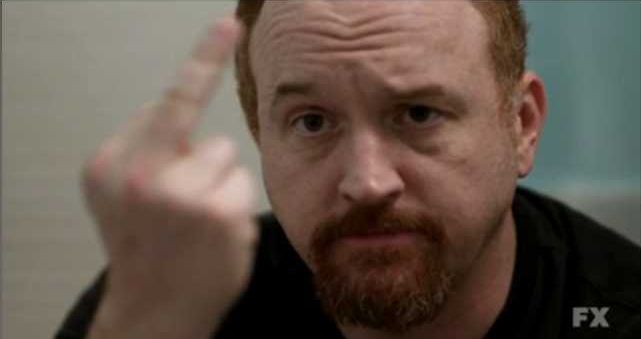 Louis CK’s bizarre, critically-acclaimed FX show, Louie, is now in its fifth season. At this point, most series begin to either repeat themselves or rest on their laurels. The time for self-discovery has passed, the audience has certain expectations, and the writers are playing to what has worked previously.
Louis CK’s bizarre, critically-acclaimed FX show, Louie, is now in its fifth season. At this point, most series begin to either repeat themselves or rest on their laurels. The time for self-discovery has passed, the audience has certain expectations, and the writers are playing to what has worked previously.
In a way, this seems to describe the start of Louie’s new season. However, given that the unpredictable nature of CK’s series, what qualifies as a status quo is far from the norm. In fact, last season’s “experimental” structure, which consisted of a six-part episode, a three-part episode, an hour long episode, and three stand-alones, ultimately congealed into what felt like a regular serialized arc. Thursday’s episode, with its strange cult-y potluck and bizarre throwaway lines (such as the pot luck host describing her sperm donor as “my friend from work who is gay and who died”) is more singular and unique than a lot of what occurred in last year’s outlier of a season.
So if Louie’s return to its status quo means returning to a lack of consistency and continuity, then what exactly defines the show? You could ask one hundred different people and get one hundred different answers, but if I were to sum it up, I would say that the majority of Louie’s idiosyncrasies come from the world of stand-up comedy.
Most stand-up, including Louis CK’s work, is drawn from real-life experiences but embellished to stress the absurdity of everyday situations. The best stand-ups do this with unexpected and extreme specifics. With his show, CK is taking the ordinary and mixing in the absurd, but his approach is different than most sitcoms. Instead of pushing these absurdities to their most obvious limit, he seems to bake the most specific examples he can right into the situations, to the point where the absurd and the real are inseparable.
Take, for instance, the season two episode in which Louie goes apartment hunting. One of the apartments he looks at, which he is told would be perfect for him, is owned by an underwear-clad man eating a pickle who has a toilet in the corner of the kitchen. It’s a ridiculous thing that Louie obviously considers strange, but the show frames it as relatively normal, just something to expect while apartment hunting in New York. A minute later, Louie looks out a window and spots a homeless man, who is approached by two suited men in a car. They get out, shove the homeless man into the car, and replace him with a nearly-identical homeless man. Then they drive off. It’s a bad neighborhood, I guess.
Also derived from stand-up is the shows inconsistent continuity and, at times, logical impossibilities. In stand-up, comedians often refer to relationships or life events that don’t actually exist if having such reference points in their lives allows for jokes. In the case of Louie, if CK has an idea for an episode or a desired emotional or comedic payoff in mind, he has no problem changing details about his characters to accommodate new ideas. This is why he has a brother in seasons one and four, and a sister in season two, but never two siblings at once. It also explains why his mother is portrayed in both an incredibly sympathetic light and as a caricature, depending on the episode. If continuity suits a given storyline, then the show will exist under that assumption. If not, then why chain yourself to an idea that limits your storytelling capabilities when you can ignore it temporarily?
It is a format that is both freeing and, in a way, more intuitive than the traditional schism between stand-alone and serialized storytelling. The divisions in continuity, inspired absurdity, and impossibility of predicting what any given episode will throw at you is what makes Louie such a delightful show. Louie never fully repeats itself and still manages to have an identity of its very own.